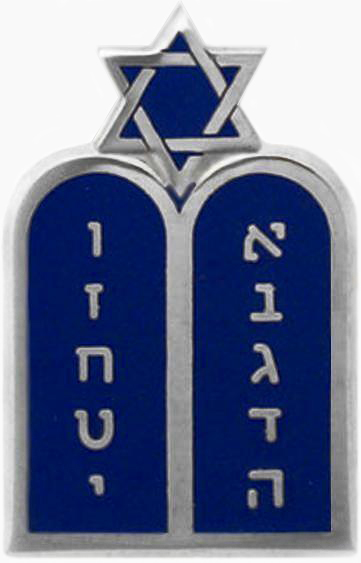|
J. H. Dessauer
Julius Dessauer (1832–1883) was a Hungarian rabbi and writer. Dessauer was born in Neutra to Gabriel L. Dessauer. He was for some years rabbi at Újpest. Bibliography *''Die Fünf Bücher Moses. Nebst dem Raschi-Commentar, Punktirt, Leichtfasslich Uebersetzt und mit AnmerkungenVersehen'', Budapest, 186archive.org *''Schulchan Aruch, Orach Hayyim ''Orach Chayim'' ("manner/way of life") is a section of Rabbi Jacob ben Asher's compilation of Halakha (Jewish law), ''Arba'ah Turim''. This section addresses aspects of Jewish law pertinent to the Hebrew calendar (be it the daily, weekly, month ..., Deutsch Bearbeitet'', 1868 *''Spruch-Lexikon des Talmud und Midrash'', 1876 *''Schlüssel zum Gebetbuche'', 1878 *''Perlenschatz: Philosophische Sentenzen in Alphabetischer Reihenfolge'', 1880 *''Der Jüdische Humorist'', 1899 References * 1832 births 1883 deaths Rabbis from Budapest Hungarian writers People from Újpest {{Hungary-rabbi-stub ... [...More Info...] [...Related Items...] OR: [Wikipedia] [Google] [Baidu] |
Hungarian People
Hungarians, also known as Magyars, are an ethnic group native to Hungary (), who share a common culture, language and history. They also have a notable presence in former parts of the Kingdom of Hungary. The Hungarian language belongs to the Ugric branch of the Uralic language family, alongside the Khanty and Mansi languages. There are an estimated 14.5 million ethnic Hungarians and their descendants worldwide, of whom 9.6 million live in today's Hungary. About 2 million Hungarians live in areas that were part of the Kingdom of Hungary before the Treaty of Trianon in 1920 and are now parts of Hungary's seven neighbouring countries, Slovakia, Ukraine, Romania, Serbia, Croatia, Slovenia, and Austria. In addition, significant groups of people with Hungarian ancestry live in various other parts of the world, most of them in the United States, Canada, Germany, France, the United Kingdom, Chile, Brazil, Australia, and Argentina, and therefore constitute the Hungarian diaspora (). ... [...More Info...] [...Related Items...] OR: [Wikipedia] [Google] [Baidu] |
Rabbi
A rabbi (; ) is a spiritual leader or religious teacher in Judaism. One becomes a rabbi by being ordained by another rabbi—known as ''semikha''—following a course of study of Jewish history and texts such as the Talmud. The basic form of the rabbi developed in the Pharisees, Pharisaic (167 BCE–73 CE) and Talmudic (70–640 CE) eras, when learned teachers assembled to codify Judaism's written and oral laws. The title "rabbi" was first used in the first century CE. In more recent centuries, the duties of a rabbi became increasingly influenced by the duties of the Clergy, Protestant Christian minister, hence the title "pulpit rabbis." Further, in 19th-century Germany and the United States, rabbinic activities such as sermons, pastoral counseling, and representing the community to the outside all increased in importance. Within the various Jewish denominations, there are different requirements for rabbinic ordination and differences in opinion regarding who is recognized as a ... [...More Info...] [...Related Items...] OR: [Wikipedia] [Google] [Baidu] |
Nitra
Nitra (; also known by other #Etymology, alternative names) is a city in western Slovakia, situated at the foot of Zobor Mountain in the valley of the river Nitra (river), Nitra. It is located 95 km east of Bratislava. With a population of about 78,353, it is the fifth largest city in Slovakia. Nitra is also one of the oldest cities in Slovakia; it was the political center of the Principality of Nitra. Today, it is a seat of a ''Regions of Slovakia, kraj'' (Nitra Region), and an ''Districts of Slovakia, okres'' (Nitra District). Etymology The first mention of Nitra dates back to the 9th century. The name of the city is derived from the Nitra River. The name is Indo-European languages, Indo-European, but the question of its History of Proto-Slavic#Pre-Slavic, pre-Slavic or Slavic people, Slavic origin has not been satisfactorily answered. Nitra might be derived from the old Indo-European root ''neit-'', ''nit-'' 'to cut' or 'to burn' using the derivational element ''-r-'' (se ... [...More Info...] [...Related Items...] OR: [Wikipedia] [Google] [Baidu] |
Újpest
Újpest (; , ) is the 4th District in Budapest, Hungary. It is located on the left bank of the Danube River. The name Újpest means "New Pest" because the city was formed on the border of the city of Pest, Hungary in 1838. Újpest was a village for six decades until 1907 when it became a town. In 1950, the town was unified with Budapest to form Greater Budapest. Since 1950, Újpest has been the 4th District of Budapest. The football (soccer), football club Újpest FC is named after the area, since they were formed in the district in 1885, and have played there ever since. District The district is composed of six parts. Újpest is the largest, but the district also includes Megyer (Újpest), Megyer, Káposztásmegyer, Istvántelek, Székesdűlő and the northern tip of the island Népsziget. History Isaac Lowy owned a shoe factory that he wanted to move to Pest (city), Pest but was unable to attain a settlement permit because he was Jewish. In 1835, he decided to create a ... [...More Info...] [...Related Items...] OR: [Wikipedia] [Google] [Baidu] |
Schulchan Aruch
The ''Shulhan Arukh'' ( ),, often called "the Code of Jewish Law", is the most widely consulted of the various legal codes in Rabbinic Judaism. It was authored in the city of Safed in what is now Israel by Joseph Karo in 1563 and published in Venice two years later. Together with its commentaries, it is the most widely accepted compilation of halakha or Jewish law ever written. The halachic rulings in the ''Shulhan Arukh'' generally follow Sephardic law and customs, whereas Ashkenazi Jews generally follow the halachic rulings of Moses Isserles, whose glosses to the ''Shulhan Aruch'' note where the Sephardic and Ashkenazi customs differ. These glosses are widely referred to as the ''mappā'' "tablecloth" to the "Set Table". Almost all published editions of the ''Shulchan Aruch'' include this gloss, and the term has come to denote both Karo's work as well as Isserles', with Karo usually referred to as "the ''Meḥabbēr''" (, "Author") and Isserles as "the Rema" (a Hebrew acronym of ... [...More Info...] [...Related Items...] OR: [Wikipedia] [Google] [Baidu] |
Orach Hayyim
''Orach Chayim'' ("manner/way of life") is a section of Rabbi Jacob ben Asher's compilation of Halakha (Jewish law), ''Arba'ah Turim''. This section addresses aspects of Jewish law pertinent to the Hebrew calendar (be it the daily, weekly, monthly, or annual calendar). Rabbi Yosef Karo modeled the framework of the ''Shulkhan Arukh'' (שולחן ערוך), his own compilation of practical Jewish law, after the ''Arba'ah Turim.'' Many later commentators used this framework, as well. Thus, ''Orach Chayim'' in common usage may refer to another area of halakha, separate from Rabbi Jacob ben Asher's compilation. ''Orach Chayim'' deals with but is not limited to: *Washing the hands in the morning *Tefillin *Tzitzit (ritual fringes) *Jewish services, Prayer *Shabbat, Sabbath *Jewish holiday, Festivals *Torah reading in synagogue. Commentaries on the ''Shulchan Aruch'' – ''Orach Chayim'' * ''Taz (Turei Zohov)'' – by Rabbi David HaLevi Segal * ''Magen Avraham'' – by Rabbi Avraham ... [...More Info...] [...Related Items...] OR: [Wikipedia] [Google] [Baidu] |
1832 Births
Events January–March * January 6 – Abolitionist William Lloyd Garrison founds the New-England Anti-Slavery Society. * January 13 – The Christmas Rebellion of slaves is brought to an end in Jamaica, after the island's white planters organize militias and the British Army sends companies of the 84th regiment to enforce martial law. More than 300 of the slave rebels will be publicly hanged for their part in the destruction. * February 6 – The Swan River Colony is renamed Western Australia. * February 9 – The Florida Legislative Council grants a city charter for Jacksonville, Florida. * February 12 ** Ecuador annexes the Galápagos Islands. ** A cholera epidemic in London claims at least 3,000 lives; the contagion spreads to France and North America later this year. * February 28 – Charles Darwin and the crew of arrive at South America for the first time. * March 24 – In Hiram, Ohio, a group of men beat, tar and feather Mormon leader Joseph Smith. Apr ... [...More Info...] [...Related Items...] OR: [Wikipedia] [Google] [Baidu] |
1883 Deaths
Events January * January 4 – ''Life (magazine), Life'' magazine is founded in Los Angeles, California, United States. * January 10 – A Newhall House Hotel Fire, fire at the Newhall Hotel in Milwaukee, Wisconsin, United States, kills 73 people. * January 16 – The Pendleton Civil Service Reform Act, establishing the United States civil service, is passed. * January 19 – The first electric lighting system employing overhead wires begins service in Roselle, New Jersey, United States, installed by Thomas Edison. February * February 15 – Tokyo Electrical Lightning Grid, predecessor of Tokyo Electrical Power (TEPCO), one of the largest electrical grids in Asia and the world, is founded in Japan. * February 16 – The ''Ladies' Home Journal'' is published for the first time, in the United States. * February 23 – Alabama becomes the first U.S. state to enact an Competition law, antitrust law. * February 28 – The first vaudeville th ... [...More Info...] [...Related Items...] OR: [Wikipedia] [Google] [Baidu] |
Rabbis From Budapest
A rabbi (; ) is a spiritual leader or religious teacher in Judaism. One becomes a rabbi by being ordained by another rabbi—known as ''semikha''—following a course of study of Jewish history and texts such as the Talmud. The basic form of the rabbi developed in the Pharisees, Pharisaic (167 BCE–73 CE) and Talmudic (70–640 CE) eras, when learned teachers assembled to codify Judaism's written and oral laws. The title "rabbi" was first used in the first century CE. In more recent centuries, the duties of a rabbi became increasingly influenced by the duties of the Clergy, Protestant Christian minister, hence the title "pulpit rabbis." Further, in 19th-century Germany and the United States, rabbinic activities such as sermons, pastoral counseling, and representing the community to the outside all increased in importance. Within the various Jewish denominations, there are different requirements for rabbinic ordination and differences in opinion regarding who is recognized as a ... [...More Info...] [...Related Items...] OR: [Wikipedia] [Google] [Baidu] |
Hungarian Writers
Hungarian may refer to: * Hungary, a country in Central Europe * Kingdom of Hungary, state of Hungary, existing between 1000 and 1946 * Hungarians/Magyars, ethnic groups in Hungary * Hungarian algorithm, a polynomial time algorithm for solving the assignment problem * Hungarian language, a Uralic language spoken in Hungary and all neighbouring countries * Hungarian notation, a naming convention in computer programming * Hungarian cuisine Hungarian or Magyar cuisine (Hungarian language, Hungarian: ''Magyar konyha'') is the cuisine characteristic of the nation of Hungary, and its primary ethnic group, the Hungarians, Magyars. Hungarian cuisine has been described as being the P ..., the cuisine of Hungary and the Hungarians See also * * {{disambiguation Language and nationality disambiguation pages ... [...More Info...] [...Related Items...] OR: [Wikipedia] [Google] [Baidu] |





